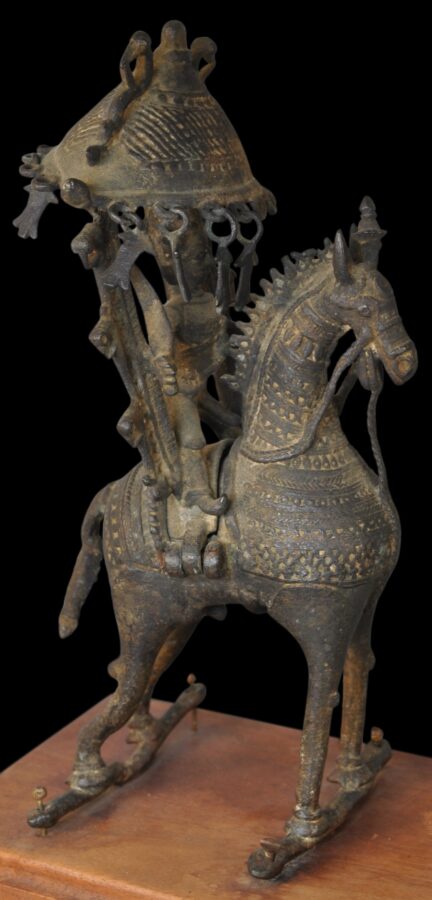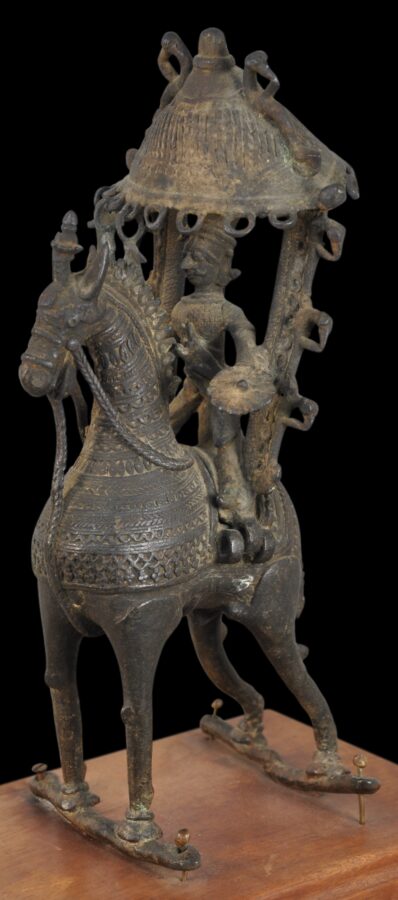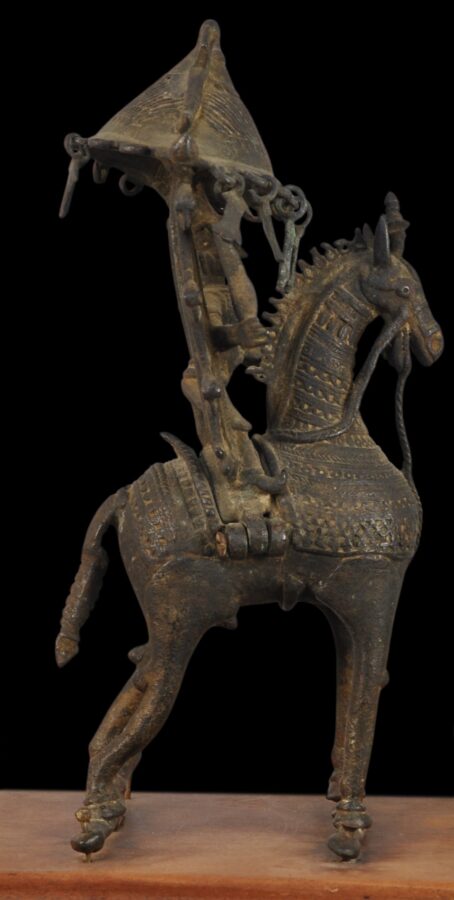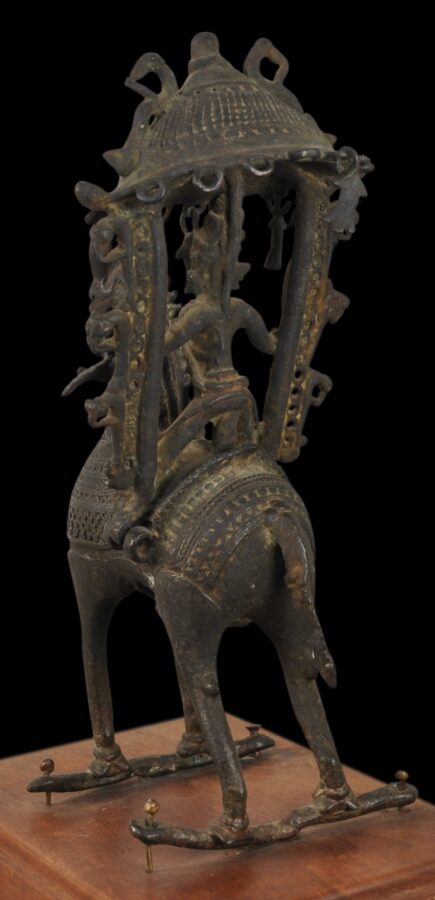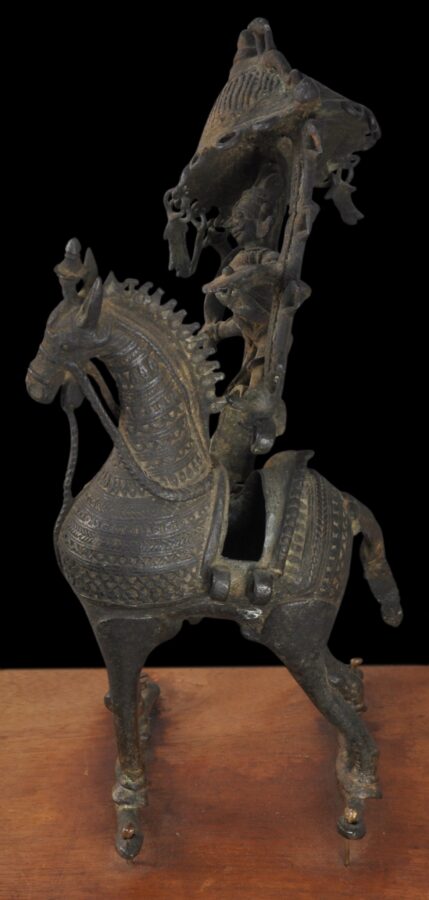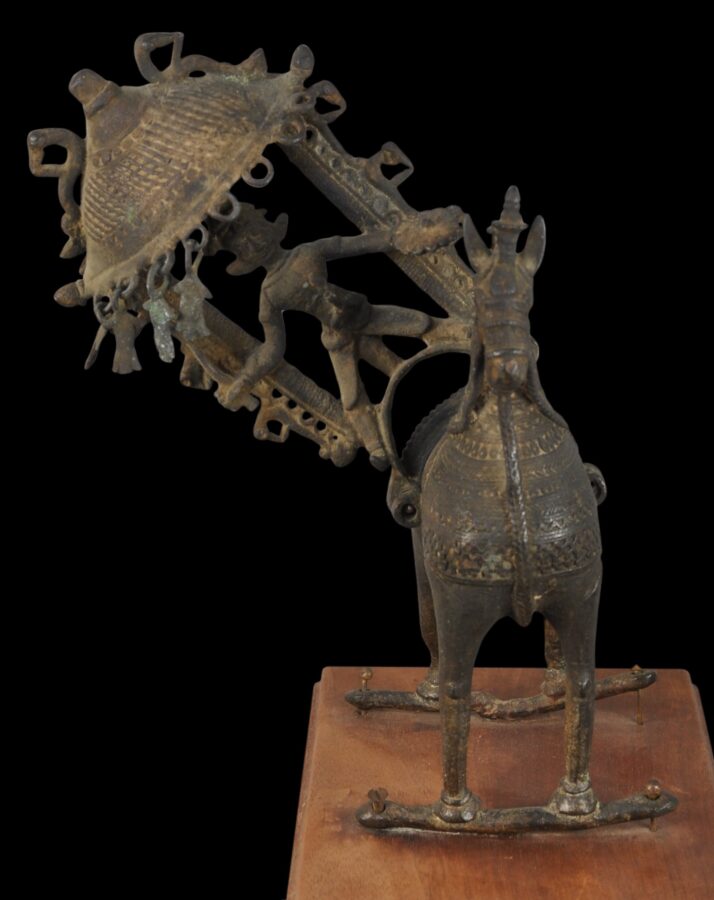Enquiry about object: 8985
Bastar Horse & Rider Bronze
Chhattisgarh, Bastar, India 18th-19th century
overall height (including stand): 29.5cm, width of base: 13.2cm, length of base: 17.7cm, weight: 1,791g
Provenance
UK art market
This image of a horse and rider was produced by the brass casters of Bastar District in Chhattisgargh state of central India. Cast from brass, the image has darkened with significant age. Most Chhattisgargh are attributable to the 20th century but the form and patina of this example suggests an earlier dating to the 18th-19th century, in keeping with a similar example illustrated in Dursum (2004, p. 100).
The image shows a rider with a tall turban and armed with a sword and shield and wears a katar on his waist. He rides a caparisoned horse. He sits beneath an aureole and a canopy.
The horse has a chunky body, thin, elongated legs, and much detailing over its body.
Possibly, the rider is Rao Dev, a mythical spirit rider who rode at night and protected village boundaries.
The rider sits on a saddle that is hinged on one side to the horse’s back and so the rider can be moved over to reveal the interior of the horse where perhaps sacred items were kept.
The image has been secured to a wooden display block – this itself has good age.
Bastar casters used a variant on the lost wax process and modelled their items in clay rather than wax.
The image has splendid patina for a Bastar brass image (usually Bastar pieces have very little.) The umbrella retains some metal dangles around the fringe but some are lost.
References
Aryan, S. & B.N. Ayran, Unknown Masterpieces of Indian Folk and Tribal Art, KC Aryan’s Home of Folk Art, 2nd & enlarged ed., 2016.
Dursum, B., et al, Change and Continuity: Folk and Tribal Art of India, Lowe Art Museum, University of Miami, 2004.



